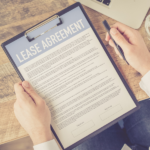Bon appetit! Planning to open your own restaurant is an exciting journey — and a daunting one. With so many moving parts and decisions to be made, you’ll need all the help you can get to ensure the success of your new business. Finding the right space for your restaurant is a crucial step in the process. We’ve put together a list of key factors to consider when browsing spaces to make your decision as simple as possible.
Settle on your target neighborhood
Location, location, location! When you’re planning to open a restaurant, one of the biggest decisions you face is where your new business will be located. The positioning of a restaurant space is crucial. While some dedicated customers will travel the extra mile (or miles) just to eat your food, most desire a more conveniently located spot to eat. As is the case with most cities, different areas attract different crowds. For instance, it’s a no-brainer for a hip Korean barbecue joint to consider a space in Koreatown. On the other hand, it could be beneficial to stand out in your niche by bringing your cuisine to an area that lacks similar restaurants. Decide which route is the best for your business and boil your ideal locations down to a small list. This will drastically reduce the amount of properties you’ll have to review.
Consider the aesthetic of your restaurant space
Are you expecting to cater towards a family-style crowd or trendy 20-somethings? Is your goal to create an intimate, candlelit atmosphere or a lively one with loud music? All of these aesthetic factors can influence how you select a space. Much of the aesthetic comes down to how you decorate the space with fixtures, but some of it comes with the building itself. Whatever your restaurant’s aesthetic, let it guide some aspects of your decision making process.
Ensure the space is accessible
If people can’t easily get to your restaurant, you’ve already thrown money down the drain. An inconvenient location can quickly deter customers from visiting and lead them straight into the hands of another spot. Consider whether or not a space has nearby parking or is located close to transit stops. Plus, make sure to inquire about a space’s accessibility features. This includes handicap-accessible doors, ramps, and elevators. Of course, these won’t be included in every space, but it makes the difference between being a welcoming business for all and failing to accommodate some potential customers.
Pinpoint your ideal size
Perhaps you go by the motto “the bigger the better” in terms of accommodating more customers. On the other hand, you may prefer a smaller space that can give off an air of exclusivity and fine dining. Even if you opt for a smaller size, ensure that all of your necessary equipment will fit. A space can seem large when empty, but will appear much smaller once all of the furniture and kitchen supplies are brought in. It would be wise to approximate how much space your fixtures will take up before settling on a desired square footage.
It’s always okay to negotiate
So, you’ve found your perfect space… but the price tag doesn’t fit your budget. Perhaps the monthly rent is great, but there are several utilities and other expenses that push the cost over the edge. Don’t be afraid to negotiate with landlords in order to reach an agreement that works for the both of you. Landlords often first present a deal that’s most beneficial to them, so there may be a bit of wiggle room to use to your advantage.
Start small for your restaurant space
Starting a restaurant is a huge commitment, and one that should never be taken lightly. Unless you are a seasoned pro in the business and have opened several restaurants before, consider starting with a short, flexible lease. This way, you can establish a solid business before you sign a longer lease. Getting locked into a ten year lease only to experience problems down the road could put you at risk of serious financial troubles.
Take your time
Don’t rush into a lease you aren’t comfortable with or make a snap decision about a space. With the commercial real estate market quickly recovering from the pandemic, there will be many options to consider. Feel free to visit spaces multiple times to get the most accurate impression. Take as much time as you need to reach an informed, confident decision before you sign on the dotted line. Your future self will thank you for it.
Let Red Handed help you find your dream restaurant space
At Red Handed, we’re committed to helping aspiring restaurateurs like you connect with landlords and find the perfect space — without the broker fees. Browse hundreds of spaces, filter by location and features, and discover the best spaces that New York City has to offer. We’re putting you back in the driver’s seat, because you know what’s best for your restaurant.






